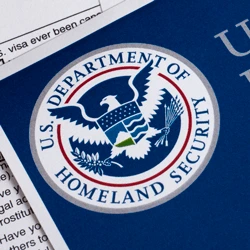Graduate certificate programs are academic programs that offer advanced training and instruction in specific professions or fields, typically in focused areas or specializations that have targeted practical applications. These programs provide students who hold a minimum of a bachelor’s degree with a less costly and less time-consuming alternative to pursuing a graduate degree, and a more efficient means of cultivating in-demand career skills and advanced proficiencies than master’s and doctoral programs. For professionals who already hold a graduate degree, a certificate program may offer a relatively direct pathway to career advancement or to initiating a career change. In addition, graduate certificate programs are generally structured to accommodate working professionals by utilizing part-time enrollment formats, scheduling classes at times that are convenient for students who work full-time, and/or offering all or most of their courses fully or partially online.
Graduate certificate programs also take less time to complete than master’s programs because they consist of fewer credits and thus a smaller number of courses. While a typical master’s program may comprise 30 to 36 or more required credits (the equivalent of ten or more graduate-level courses), graduate certificate programs generally require roughly half that number of credits/courses and typically do not include a capstone (i.e., thesis or applied project) requirement. Thus, a typical certificate program might consist of three, four, or five graduate-level courses, totaling 12 to 18 credits. This allows colleges and universities to offer graduate certificate programs at roughly half the cost of a master’s program, and for students to complete a certificate program in eight to 12 months rather than the 24 to 36 months that is common for master’s programs in many fields.
Search Online Graduate Certificate Programs
Growth of Graduate Certificate Programs
As more colleges and universities diversify their program options and try to attract more non-traditional students, graduate certificate programs, particularly online graduate certificate programs, have seen an increase in growth over the last 20-plus years. In the 2002-03 academic year, for example, there were a total of 27,288 graduates from post-baccalaureate and post-master’s certificate programs, based on an analysis of data collected by the US Department of Education’s National Center for Education Statistics (NCES) for its Integrated Postsecondary Education Data System (IPEDS). Ten years later, in the 2012-13 academic year, the number of students graduating from post-baccalaureate and post-master’s certificate programs offered by colleges and universities in the US had nearly doubled to 52,107. For the 2022-2023 school year (latest available data), that number grew to 95,099. The table below contains data for the last six years for which IPEDs has published data and shows the breakdown between post-baccalaureate and post-master’s certificate programs.
| Academic Year | 2017-18 | 2018-19 | 2019-20 | 2020-21 | 2021-22 | 2022-23 |
|---|---|---|---|---|---|---|
| Post-Baccalaureate Certificates | 48,651 | 50,592 | 57,036 | 64,174 | 66,797 | 69,290 |
| Post-Master's Certificates | 21,809 | 22,114 | 24,100 | 24,424 | 26,081 | 25,809 |
| Total Graduate Certificates | 70,460 | 72,706 | 81,136 | 88,598 | 92,878 | 95,099 |
The advantages of earning a graduate certificate are fairly straightforward: graduate certificates are an efficient means of adding new professional skills, cultivating in-demand proficiencies, and developing a higher level of expertise in competitive fields. They are less expensive and require a smaller time commitment compared to graduate degree programs, and they often have more streamlined admissions requirements (e.g., no GRE or GMAT scores required). For professionals looking to advance in their current position or for those looking to change careers, a graduate certificate may be a good alternative to a master’s program. In addition, in some fields, earning a graduate certificate can be a practical way to fulfill continuing education requirements and to fulfill requirements for specific types of professional licensure. Finally, while a graduate certificate is not the equivalent of a master’s degree, many graduate degree programs will accept credits earned in a graduate certificate program toward an eventual master’s degree for students who opt to pursue further graduate studies after they complete their certificate program.
Find Graduate Certificate Programs by Subject Area

Analytics
Graduate certificate programs in analytics offer career-oriented training and instruction in computer programming, database systems, data mining processes, statistical modeling, and more.

Business
Graduate certificate programs in business provide training and instruction in many common business specializations, including accounting, business administration, finance, marketing, real estate development, organizational leadership, and more.

Communication
Communication graduate certificate programs offer training in professional communication, health communication, political communication, strategic/business communication, technical and scientific writing, journalism, media management, and more.

Education
Graduate certificate programs in education provide teachers with qualifications to advance their careers in many teaching specializations, from elementary and secondary school math, reading, and science teaching, to gifted and special education.

Healthcare
Graduate certificate programs in healthcare provide career-oriented training and instruction in specific allied health professions, such as public health, clinical and medical laboratory science, nutrition and dietetics, informatics, and health administration.

Nursing
Graduate certificate programs in nursing are designed to provide Registered Nurses (RNs) who have already completed their Master of Science in Nursing (MSN) with a means of adding a new Advance Practice Registered Nurse (APRN) or non-APRN specialization.

Public Administration, Criminal Justice, and Security
Graduate certificate programs in public administration, criminal justice, and homeland security provide targeted training and advanced skills in designing, implementing, and overseeing government and criminal justice programs at the local, state, and federal levels.

Psychology and Counseling
Psychology and counseling graduate certificate programs provide professional counselors and psychologists with advanced and specialized training, and can prepare students for non-clinical work in areas of counseling and psychology that do not require a graduate degree.

Technology
Graduate certificate programs in technology provide career-oriented training and instruction in computer programming, information technology management and security, digital forensics, and other fields that are integral to the tech sector and the technology economy.








